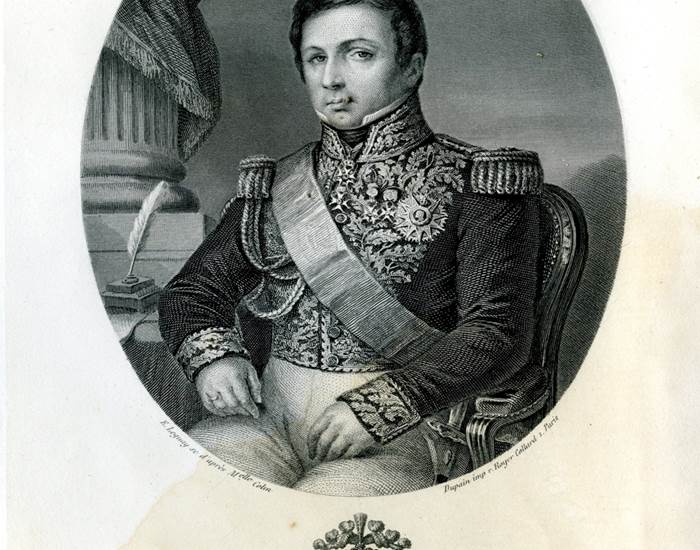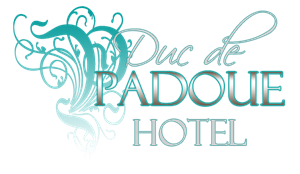Who is the Duke of Padua?

Duc de Padoue
Jean Thomas ARRIGHI of CASANOVA
Duke of Padua
On March 8, 1778 was born in Corte Jean-Thomas ARRIGHI, future Duke of Padua. His hometown would honor commemorating the birth because it is that of one of its most glorious children, whose name is registered in the south side of the Arc de Triomphe de l'Etoile in Paris.
Historians Paul-Louis and Georges Albertini RIVOLLET have devoted an important chapter in their remarkable work on "Military Corsica." And it is this work that we borrow, to recall them here, key dates and deeds of the life of this great Cortenais.
The family of Jean-Thomas ARRIGHI, who played a military and political role in the island since the 14th century, in 1772 received the right to appoint "ARRIGHI DE CASANOVA", Say the authors, because the only down to the time of Leonardo Casanova" famous camp of Mestre on the king "had entered in 1635.
Cousin of the Emperor
The father of John Thomas became prefect of the department of Liamone and Empire Baron after, in 1796, administered the department of Golo. He had four children of a cousin of Letizia Ramolino and Jean-Thomas was therefore a cousin of Napoleon Bonaparte.
He left Corsica at the age of nine to enter the military school Rebais, near Meaux. Then, after the removal of such schools by the Government of the Republic in 1799, his father became deputy member of the National Convention, sends complete his studies at the University of Pisa.
He returned to Corsica in 1796 and was appointed on September 26 of that year as Lieutenant of the 3rdlight infantry company of the Liamone. From November 30 he was raised on site and rank of Lieutenant. Then Joseph Bonaparte, deployed to Corsica, takes her with him to Italy and present it to his brother. Named by the general adjutant Berthier, he took part in that capacity in the Veneto countryside and Tyrol.
May 6, 1797 was sold to Joseph Bonaparte, Ambassador to the Holy See Rome, makes it an embassy secretary while he retain his military rank. At the end of 1797 following Joseph in Florence, but almost immediately after General Bonaparte awarded him a deputy lieutenant's commission in the General Staff.
The May 15, 1798 Jean-Thomas Arrighi sailed for the Egyptian campaign on the frigate "Justice." it will therefore be illustrated continuously in both diplomatic and military missions which we can mention here a very brief sampling. The day after the battle of Salahieh where he hadskull cracked a shot from scimitar under the eyes of General Bonaparte, the latter appointed him captain and gave him a sword of honor.
Still the general adjutant Berthier, he joined then (in particular) the first to Jaffa and is still one of the first to enter St. John of Acre, where the French can not be maintained, and hence, seriously injured he was evacuated to the hospital in Cairo. There is cared for months.
Retained by the consequences of his terrible wound, he can accompany General Bonaparte and Berthier on their return to France: and must wait September 26 to be repatriated on "Marianne" who, playing misfortune has to go to a brick English has to the coast of France, the captive officers exchange formalities were long and it was only after two years of absence that John Thomas Arrighi could join in May 1800, the army in Italy in his ADC functions. From June 14 it illustrates Marengo.On October 11 he was appointed squadron leader in a decree that his rank decision took effect from June 14
Thus, over 23 officer, Arrighi then already had five campaigns, battles twenty two years of captivity and two serious injuries, he also enjoyed the total confidence of General Berthier he should not leave that to take, appointed Chief brigade command of the 1st dragoons 31 August 1803. He was made an officer of the Legion of Honor June 5, 1804.
On 8 October 1805 leads to Vertigen charge at the head of her dragons when he was seriously injured again. Its action is based on the 3rd Bulletin of the Grand Army and he received a sword of honor. Still recovering attends on December 2 in the battle of Austerlitz. Napoleon called the December 25 Commander of the Legion of Honor.
After Austerlitz, 1st Dragoons occupied several cities in Germany and Arrighi receives Arensberg, May 19, 1806, the colonel's dragon of the Imperial Guard. It was at the head of this elite squad that made the 1806 and 1807 campaigns in Prussia and Poland June 14, 1807, the evening of the battle of Friedland during which he distinguished himself, Napoleon made brigadier general and, confirming his rank on 25 June, let him command the dragons of the Imperial Guard.
DUKE OF PADUA
It is March 25, 1808 the Emperor made the Duke of Padua. On October 27 of that year he went to join his regiment to go to his head and get in the Bidasoa Spain previous Napoleon and the Imperial Guard.
During this brief campaign is distinguished in Madrid and Benavente. He then moved to Paris the Emperorthe are urgently convened and that the charge of the reorganization of the cavalry.
We find 22 May 1809 at the Battle of Essling behaving in his usual bravery after Napoleon had given him on the field 3ème division whose commander, General Spain, was killed May 21 It is made generally of division on May 25 and it is the head of the third division it will acquire on July 6, a new glory at the Battle of Wagram. On 23 July 1810 he was appointed inspector general of cavalry and received the Grand Cordon of the Order of Reunion.
With a mission to Piedmont in May 1811, he may, in June, a short stay in Lucca, Tuscany, and receive his parents from Corsica, including his father, the prefect of the Liamone. Its mission ended, he moved to Paris where, richly endowed by the Emperor, he married on February 23, 1812, to miss Montesqiou old nineteen.
Starting for the Russian campaign, Napoleon gave him the command of the coast of the ocean from the Elbe to the Somme. Heavy mission that on his return the Emperor was aware that it had been busy.
1813 saw Arrighi engaged in a long series of organizational tasks alternating with glorious participations in incessant fighting and it was the same in 1814. Until his fall under his horse shot by a grape-shot for an ultimate load in defense of Bagnolet and Montreuil against the onslaught of the enemy masses.
Governor and representative of Corsica
Replaced in the Army cadres and made a peer of France in return from Elba, the Duke of Padua was sent as governor of Corsica, the island restore the imperial power, which it does Perfectly.
After Waterloo he resigns and proscribed, retired in Lombardy and in Trieste, where his wife died on June 14, 1817. Included in the 2th amnesty, he returned to France July 19, 1820.
On 13 May 1849 the Duke of Padua was elected overwhelmingly representative of Corsica to the Legislative Assembly, then became senator after receiving the dignities of Grand Officer and Grand Cross of the Legion of Honor. Finally it is called, December 29, 1852, the Government of the Hotel des Invalides, replacing Jérôme imperial prince Marshal of France. He died in these functions March 23, 1853 and was buried on the 26th in the vault reserved for Governors Invalides.
The town of Corte, a subscription which passed beyond the limits of the city (over 8,000 signatures) raised him in 1867, a statue from the chisel of the sculptor Bartholdi on a place which was named. Nationally, the name itself was registered, as we pointed out earlier in this article, south side of the Triumph of the Etoile de Arc.
(1) "military Corsica" P.-L Albertini and Rivollet G., J. Peyronnet Editor, Paris 1959.






